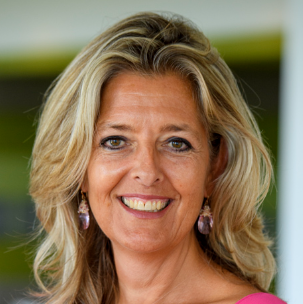SER - Economic and Social Council of the Netherlands
Info
Contact
52.0857799, 4.3299348
Introduction
The SER is the Dutch government's main advisory body for national and international social and economic policy, and as such represents the interests of employers and employees.
The SER is independent of the government and financed by the private sector. It may give advice, solicited or unsolicited, on all major social and economic issues.
Its administrative remit consists of monitoring commodity and sectoral boards, the public bodies that jointly represent employers’ organisations and trade unions within a particular sector. The SER also monitors compliance with the law governing works councils and supervises the Merger Code.
Mission
As an advisory and consultative body of employers' representatives, trade unions representatives and independent experts, the Social and Economic Council of the Netherlands (SER) aims to help create social consensus on national and international socio-economic issues.
The SER advises the Dutch government and parliament on the outlines of social and economic policy and on important legislation on social and economic issues. The SER’s advisory reports ideally have a dual role: to help shape cabinet policy to ensure it enjoys broad support from society and to help ensure the business sector operates in a socially responsible manner.
The SER’s advice is guided by the objective of social prosperity in its widest sense. This encompasses not only material progress (i.e., increased affluence and production), but also social progress (i.e., improved welfare and social cohesion) and a high-quality environment in which to live (i.e., environmental and spatial factors).
In its work, the SER is committed to detecting and interpreting signals from society. It offers various civil society organisations the opportunity to contribute specific expertise. The SER also shares information extensively with universities and policymakers in the Netherlands and abroad, and has regular contact with parliament and the various government departments.
Membership
The SER is made up of three groups of members: employers and employees (i.e. industry) represented by their central bodies, and a third group made up of independent (Crown) members, who are government-appointed experts. The SER has 33 members, eleven from each group.
Organisation and number of members
Employers' representatives
Vereniging VNO/NCW (Confederation of Netherlands Industry Employers)-7
MKB -Nederland (Royal Dutch Association of Small and Medium-sized Enterprises)-3
LTO- Nederland (Dutch Federation of Agriculture and Horticulture)-1
Employees' representatives
FNV (Federation of Netherlands Trade Unions)-8
CNV (National Confederation of Christian Trade Unions in the Netherlands)-2
Unie MHP (Trade Union Federation for middle and higher level employeesof Managerial and Professional Staff)-1
Crown members
Crown members are independent experts. They are often university professors, holding chairs in economics, finance, law or sociology. They are appointed by the cCrown, but are not accountable to the government.
The president of the Nederlandsche Bank (Dutch Central Bank) and the director of the CPB - Centraal Planbureau (Netherlands Bureau for Economic Policy Analysis) are both Crown members.
The chairman of the SER is also appointed by the Crown, on the SER’s advice.
Ministerial representatives
All public SER meetings and most closed meetings of the commissions and working parties are attended by ministerial representatives as observers.
These officials are specialised in particular policy-making areas and it is thus possible to hold useful discussions with government departments.
Organisation
The SER has a secretariat to prepare and oversee its numerous activities. It has a staff of about 120, headed by a Secretary-General.
The secretariat consists of:
- three Directorates
- economic affairs
- social affairs
- administrative affairs
- three Staff divisions
- financial affairs
- human resources
- communications
- one Facility management department.
Working Methods
The SER's working methods must be such that it can carry out its many tasks and give advice on a wide variety of subjects. To ensure that this is the case the SER is assisted in its work by a number of committees and a secretariat.
The SER has an executive committee to prepare and carry out its day-to-day work. In principle, the full SER meets on the third Friday of each month. The main items on the agenda are the discussion and finalisation of opinions to be submitted to the government or parliament.
Each opinion is prepared in detail by a committee or a working party. When not all points are agreed unanimously, the different views are set out in the opinion.
The plenary meetings of the SER are open to the public.
Committees
The SER has set up a large number of committees and working parties to prepare and carry out its work. Like the SER itself, committees are made up of three groups: representatives of employers’ organisations, representatives of trade unions, and independent experts. Committees are chaired in principle by a Crown member.


